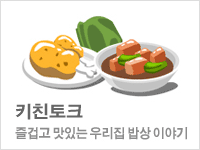디플로마트, 한국의 언론탄압, 민주주의에 대한 위협이라 상세 보도
-아시아의 모범적 민주주의 국가가 언론탄압국으로 전락
-선택의 기로에 선 한국의 국민들
디플로마트가 한국정부의 검열을 통한 언론탄압의 강화는 최근 수년간에 걸쳐서 조용하게 진행되어왔으며 이번 산케이 가토 기자에 대한 한국 검찰의 기소는 언론 검열의 가장 최근의 한 가지 예일 뿐이라고 언급하는 등, 한국의 언론탄압사태에 대해 자세히 보도하고 있다.
디플로마트는 ‘South Korea’s Attack on the Press – 한국의 언론탄압’이라는 제목으로 검찰의 산케이 기자 기소에 대해 보도하며 이 사건을 보는 많은 한국인들의 시각이 일본과의 역사적인 관계의 특수성 때문에 왜곡되었음을 지적하고 사건의 본질이 정부 당국에 의한 협박이나 다름 없는 공권력의 남용이고 언론의 자유에 대한 침해라고 말하며 비평가들과 일본을 포함한 국제 언론들이 한국이 민주주의 국가라는데 대해 그 신뢰성에 의문을 제기했다고 언급했다.
또한 2011년 이후로 프리덤 하우스와 국경없는 기자회 등 유수한 두 기관이 한국을 부분적으로 표현과 언론의 자유가 제한되고 있는 나라라고 평하고 있다는 것과 보안법으로 보장된 북한 관련 사안에 대한 정기적인 검열이 아닌 것에 대해서도 명예훼손과 관련한 정치적 검열이 계속되어 왔음을 보도했다.
디플로마트는 다시 검열의 판단 기준과 평가의 모호성과 검열의 파급되는 성향 때문에 명예훼손이란 용어가 매우 위험한 것이며 검찰의 카카오톡 검열시도 등 강한 인터넷 통제로써 한국이 국제사회에서 감시 대상 국가로 분류된 적도 있음을 언급하며, 검열의 추세가 계속되면 현 정권뿐만 아니라 그동안 경제발전과 민주주의 쟁취를 동시에 이뤄 국제사회의 존경을 받았고 2018년 평창동계올림픽의 개최와 2022년 FIFA 월드컵 유치를 원하는 한국의 국가위상에 해가 될 것이라고 말한다.
끝으로 홍콩의 시위로 아시아 지역의 민주주의 성장을 기대하며 바라보는 세계가 있음을 기억하고 정부의 반 민주주의적 언론탄압에 대해 국민이 반기를 들어야 할 것을 말한다.
눈부신 경제발전과 민주주의의 성취로 전 세계가 주목하고 있던 한국이 이젠 다시 민주주의 발전에 역행하는 언론탄압국으로 세계의 언론과 사회의 이목이 집중되고 있다. 지속적인 성장과 발전을 이룩하기는 어렵지만 과거로의 회귀나 추락은 한 순간에 이루어진다. 이 중대한 기로에서 한국의 국민들은 어떤 선택을 해야 할까?
다음은 뉴스프로가 번역한 디플로마트 기사 전문이다.
번역 감수: 임옥
기사 바로가기 ☞ http://thediplomat.com/2014/10/south-koreas-attack-on-the-press/?utm_source=f...
South Korea’s Attack on the Press
한국의 언론탄압
South Korea’s indictment of a Japanese journalist is just the latest example of its press censorship.
한국의 일본 언론인 기소는 언론 검열의 가장 최근의 예에 불과하다.
By Daye Lee & Victor Cha
October 16, 2014
It is disheartening to witness one of Asia’s exemplary democracies engaging in outright censorship. On October 8, South Korean prosecutors indicted Japanese journalist Tatsuya Kato on charges of writing a defamatory article about President Park Geun-hye’s unexplained absence for several hours during the Sewol ferry disaster.
아시아의 모범적인 민주주의 국가 중 하나가 노골적안 언론검열을 시행하는 것을 목격하는 것은 실망스러운 일이다. 10월 8일 한국 검찰은 일본 언론인 가토 다쓰야가 세월호 참사 당시의 몇 시간 박근혜 대통령의 해명되지 않은 부재에 대해 명예훼손적인 기사를 썼다는 혐의로 그를 기소했다.
To outside observers, the South Korean government’s response is simply baffling given that a head of state’s whereabouts is a common subject of public interest. Many South Koreans, however, probably find it reasonable. The Park administration’s poor response to the ferry tragedy has aroused public anger, but South Koreans see this as a domestic affair that is off-limits to foreign criticism, especially from the Japanese.
밖에서 보는 사람의 입장으로서, 한 국가 지도자의 행적은 대중의 관심을 받는 흔한 주제이므로 한국 정부의 대응은 이해가 되지 않는다. 하지만 많은 한국인들은 그것이 합당하다고 보는 듯 하다. 박근혜 정권의 세월호 참사에 대한 서투른 대처는 대중의 분노를 자아냈지만 한극인들은 이것을 외국인들, 특히 일본이 비판해서는 안될 국내 문제라고 본다.
South Koreans may perceive the indictment of Kato as a rightful punishment on an ultraconservative Japanese newspaper that insulted their president, rather than an abuse of state power or a violation of freedom of the press. In fact, it was a complaint filed by a local civic group that inspired South Korean prosecutors to pursue the case at all. South Koreans have often criticized the Sankei Shimbun as Japan’s right-wing, nationalist newspaper that takes biased positions on sensitive issues in the bilateral relationship, such as “comfort women” and island disputes.
한국인들은 가토에 대한 기소가 공권력의 남용이나 언론자유에 대한 침해라기보다는, 자국 대통령을 모욕한 한 극우 보수 일본 신문에 대한 적법한 처벌이라고 인식할지도 모른다. 사실, 어쨌든 한국검찰이 이 사건을 수사하게된 것은 한 지역 시민단체에 의해 행해진 고발이 단초였다. 한국인들은 “위안부 여성”이나 독도분쟁과 같은 양국관계에 민감안 사안에 대해서 편협한 입장을 취하는 산케이신문을 종종 비난해왔다.
Regardless, this is press censorship in essence, and South Koreans should be opposing the imprudent decision made by their government. Immediately after the news of Kato’s indictment was released, both the Japanese and international media raised questions about South Korea’s credibility as a democracy. According to these critics, the indictment of Kato is “nothing short of intimidation by the authorities” and therefore unacceptable by the standards of the world’s advanced democracies.
그럼에도 불구하고, 이것은 본질상 언론검열이며, 한국인들은 자국 정부가 행한 신중하지 못한 결정에 반기를 들어야한다. 가토에 대한 기소 뉴스가 나간 즉시, 일본과 국제 언론은 민주국가로서 한국의 신뢰성에 의문을 제기했다. 비평가들에 따르면, 가토에 대한 기소는 “정부당국에 의한 협박에 다름없는 것”이며 그러므로 세계 선진 민주주의의 기준으로 받아들여 질 수 없다
Sadly, the South Korean government’s indictment of Kato is only a small part of the quiet but disturbing censorship trend that has intensified in recent years. Since 2011, Freedom House has identified South Korea as a“partly free” country that actively censors the media. Reporters Without Borders, Amnesty International, and the United Nations have made similar e-valuations regarding the freedom of the press and expression in the country.
슬프게도, 한국정부의 가토에 대한 기소는 최근 수년간에 걸쳐 강화되어온 조용하지만 염려스러운 검열추세의 아주 일부일 뿐이다. 2011년 이후로, 프리덤하우스는 한국을 적극적으로 언론을 검열하는 “부분적으로 자유로운”나라로 규정지었다. 국경없는 기자회와, 국제사면위원회 그리고 UN은 한국의 언론과 표현의 자유에 관해 비슷한 평가를 내려왔다.
In addition to North Korea-related censorship (which is technically safeguarded by the National Security Law), the South Korean government has regularly practiced political censorship involving the concept of defamation. Given that Kato was also charged for defaming Park, it is important to think about how the authorities in Seoul tend to conceptualize insults upon top government officials. Defamation is a dangerous term, as it is difficult to draw a line between what is indeed defaming and what is not, especially when considering comments made on political leaders.
북한과 관련한 검열(사실상 국가보안법에 의해 보장되어 있다) 외에도 한국 정부는 명예훼손과 관련한 정치적 검열을 정기적으로 수행해왔다. 가토 씨가 박 대통령을 명예훼손한 혐의로 기소된 것을 고려할 때, 한국 검찰이 정부 고위공직자들에 대한 모욕을 어떻게 개념화하려는지 생각해보는 게 중요하다. 명예훼손이란, 특히 정치 지도자들에 대한 발언들을 고려할 때, 실제 명예훼손과 그렇지 않은 것 사이에 명확한 구분을 하기 어렵기 때문에 위험한 용어다.
Censorship is a slippery slope. Once it is practiced in one area, it can easily move into others. In 2012, South Korea was categorized as a country under surveillance due to the government’s tight control of the Internet. Just last week, South Korean prosecutors attempted to censor the country’s most popular texting app, Kakao Talk. And now the authorities are considering a ban on balloon launches by NGOs to stop them from sending leaflets over to North Korea.
검열은 미끄러운 비탈길과 같다. 일단 한 분야에서 이것이 실행되면 곧 다른 분야로 쉽게 전이된다. 2012년 한국은 정부의 강한 인터넷 통제 때문에 감시 대상 국가로 분류된 바 있다. 바로 지난 주, 한국 검찰은 이 나라의 가장 유명한 문자 앱인 카카오톡을 검열하려고 시도했다. 또한 현재 검찰은 비정부단체들의 대북전단 살포를 막기 위해 풍선 발사를 금지하는 것을 검토 중이다.
If this trend of censorship continues, South Korea’s anti-democratic reputation will hurt not only President Park’s own political legitimacy but also the country’s national interests. South Korea is a respected member of the international community and an attractive place for foreign leaders, investors, and visitors today not only because it accomplished miraculous economic growth but also because its people fought and gave their lives to protect democratic rights. South Korea is one of the rare cases that achieved both economic development and democratic consolidation in Asia, which is something that countries like China and Singapore have been unable to do. Electing the first female president in East Asia also helped the country set the “Korean example” in the region, further strengthening its political diversity and democratic stability. The government’s growing engagement in censorship is thus a big blow to its international reputation.
이러한 검열 추세가 계속된다면 한국의 반민주주의적 이미지는 박대통령 자신의 정치적 정통성은 물론이고 한국의 국가 위상에도 해가 될 것이다. 한국은 기적 같은 경제 성장을 이뤄냈을 뿐 아니라 민주주의 권리를 지켜내기 위해 시민들이 목숨을 걸고 싸웠다는 점에서 국제 사회의 존경받는 일원이며 오늘날 해외 지도자들과 투자자들, 방문객들에게 매력 있는 곳이다. 한국은, 중국과 싱가포르 같은 나라들은 해내지 못한, 아시아에서는 드물게 경제발전과 민주주의 체제를 모두 일궈낸 몇 안 되는 나라 중 하나다. 동아시아에서 첫 여성 대통령을 선출한 점도 이 지역에서 이 나라가 “한국의 사례”로 자리잡는 데 도움이 되었고, 나아가 정치적 다양성과 민주주의적 안정성을 공고히 했다. 따라서 정부의 검열이 증가하는 것은 이러한 국제적 명성에 커다란 타격이 된다.
South Korea has a lot on its agenda that would require cooperation of various international actors, including the media. To name a few, it is hosting the 2018 Winter Olympics in Pyeongchang and is hoping to re-bid for the 2022 FIFA World Cup. Being labeled a censorship regime is not helpful at the least, and potentially detrimental to Seoul’s international priorities.
한국은 언론을 포함한 여러 국제적 관계자의 협력이 필요할 많은 일정을 갖고 있다. 몇 개만 언급하면, 한국은 2018년 평창동계올림픽을 개최하고 2022년 FIFA 월드컵의 재유치를 희망한다. 검열 정권이라고 명명되는 것은 서울의 국제적 우선순위에 최소한 아무런 도움이 되지 못하고, 잠재적으로 해가 된다.
With the protests in Hong Kong, the world’s eyes are on Asia in the hope of seeing further democratic growth in the region. It is time for Seoul to solidify the Korean example, not abandon it.
홍콩의 시위로 세계가 이 지역의 발전적인 민주주의적 성장을 기대하며 아시아를 주목하고 있다. 정부는 한국의 예라는 것을 확고하게 만들 때이지 포기할 때가 아니다.
Daye Shim Lee is a fellow in the Asian Studies Program at Georgetown University and the former Executive Editor of the Georgetown Journal of International Affairs.
대심 리는 조지타운 대학교 아시아학과의 선임 연구원이며 조지타운 국제문제 학술지의 전 주필이었다.
Victor Cha is Director of Asian Studies and D.S. Song-KF Professor of Government & International Affairs at Georgetown University.
빅터 차는 조지타운 대학교 아시아학과장이며 정부와 국제문제 송-KF 석좌교수이다.
Note: In this article, the authors use the terms “government” and “authorities” interchangeably to refer to the administration and the prosecutors’ office in Seoul, but not necessarily the court.
이 글에서 저자들은 ‘정부’와 ‘정부당국’을, 재판부를 의미하는 말이 아니라 한국의 행정부와 검찰을 가르키는 같은 의미의 용어로 사용했다.
[번역 저작권자: 뉴스프로, 번역기사 전문 혹은 일부를 인용하실 때에는 반드시 출처를 밝혀주십시오.]

